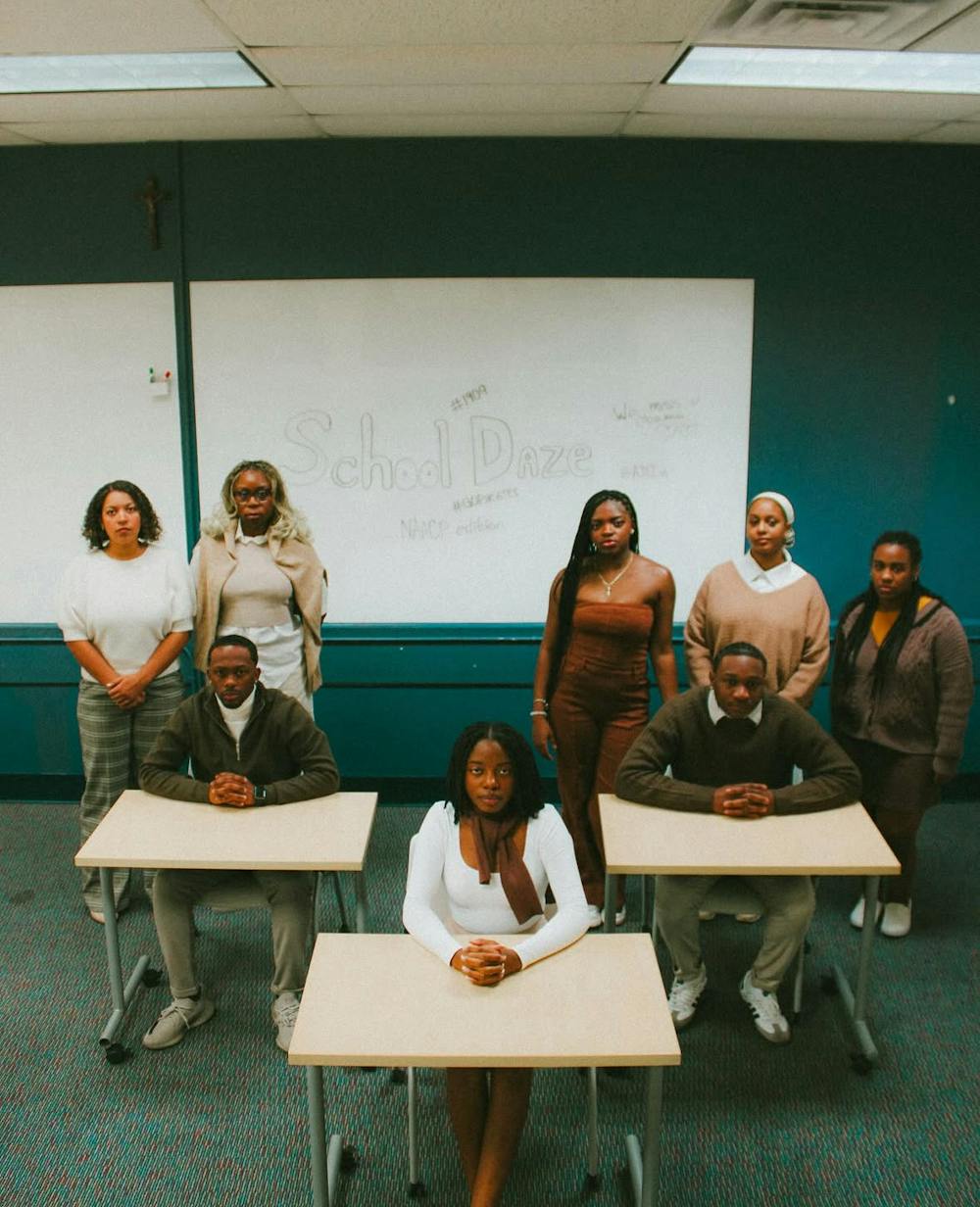February is not only the month of love and the Super Bowl, but it is also the month of recognizing Black history.
February was officially designated as “Black History Month” in 1976 by U.S. President Ford, courtesy of the extensive research and contributions of historian and scholar Carter G. Woodson, who advocated for its establishment.
President Ford chose this month because it marks the birthdays of Abraham Lincoln and Frederick Douglass, who both have made significant impacts on the lives of Black Americans.
Brianna Bou, a senior social and behavioral science major and president of the Black Student Union (BSU), said that Black History Month (BHM) is a month that encourages a sense of community with a focus on learning the history of those who have made a significant impact on the world we live in.
“I would definitely say it’s a time for us to uplift and encourage one another by looking at our past, all the obstacles and struggles we’ve overcome, and to recognize just how far we’ve come from that,” Bou said.
Bou said she’s been celebrating BHM all her life.
“I remember participating in assemblies in elementary school and we’d honor numerous Black historical figures,” Bou said.
Bou added that she continues to celebrate Black history not only in February but also by keeping herself educated by enrolling in Black history courses.
“I like to enroll in AFAM courses just to understand my history better,” Bou said. “I wasn’t taught much Black history in middle and high school, so I like to think that by taking these courses, I get a chance to bridge that gap.”
Imani Corbett is a senior criminal justice major and president of Seton Hall’s NAACP chapter. She is also a member of Zeta Phi Beta Sorority, Inc. She said she celebrates BHM by attending various Black caucus events, supporting Black businesses, and engaging in meaningful conversations about Black history and the Black experience.
Kayla White, a junior majoring in the 3+2 occupational therapy program and president for Mind Over Matter said she likes to celebrate Black history by making sure Black students have a presence on campus.
“I like to attend different events, especially events especially ones that promote Black history, and continuing to educate myself and pouring back into my community,” White said.
Each student has a prominent Black historical figure they look up to.
“My favorite leader would have to be Violette N. Anderson,” Corbett said. “She was the first Black woman admitted to practice [law] before the U.S Supreme Court.”
Bou said her favorite Black historical figure is Jackie Robinson.
“I love baseball,” Bou said. “I’m a big fan so just considering his impact on the MLB and how he integrated the Black community into the game, really shows just how baseball wouldn’t be the same without him.”
Bryce Miller, a junior finance technology marketing and philosophy, and public relations chair of BSU said he enjoys the February honoring those around him. Miller said his favorite Black historical figures are Venus and Serena Williams for that reason.
“They were disruptors in the game of tennis, and you didn’t really see people who looked like them,” Miller said.
Zuir Hylton, a senior social work major, vice president of the Phi Eta Chapter of Alpha Phi Alpha Fraternity Inc., and event coordinator of BSU, said that his favorite Black historical figure is Martin Luther King.
“He’s someone that we learn a lot about in school and like the history of, but we don’t really get to talk about the darker side of his story,” Hylton said. “I think while we learn about how he fought for our rights, we see him as a hero but forget that at the time he was viewed as a criminal, people hated him, and he was literally assassinated.”
Corbett said that BHM helps her navigate racial challenges.
“I’ve been in spaces where I’ve felt overlooked or underestimated before, but reflecting on my Black history just reminds me that I’m not alone and encourages me to push through those obstacles like those who came before me,” Corbett said.
Miller said he views BHM as a month that signifies unity.
“It’s a month to celebrate all of the love that we have in our community and the overall passion that we have for each other,” Miller said. “It’s a time to acknowledge how far we’ve come while continuing to look forward to the future.”
He also said that Black history helps shape his identity.
“It helps me embrace who I am,” Miller said. “Just being able to acknowledge and celebrate our greatness this month reminds me of what I come from, especially as a Black man going to a predominantly white institute, there are times that I don’t see others who look like me in my field or I may be the only Black guy in the room, so Black history helps me fall back into that blanket of what my identity truly is.”
Miller recognizes those building representation right down to his support system: “I like to focus on those who have uplifted me such as my family and friends and my BSU community,” Miller said.
White said Black history has played a major role in shaping her identity.
“I would not be here today and have the rights and privileges I do now if it were not for our African American trailblazers,” White said.
She said the majority, if not all of the Black community, face racial challenges.
“Growing up attending numerous predominantly white schools, unfortunately, has been difficult, especially having negative experiences such as microaggressions and people being ignorant towards the Black experience,” White said.
Black History Month allows Black people to shine a light on their struggles while still acknowledging Black excellence.
“I think the best way to overcome these struggles is to stay united and [be] strong-minded, pouring back into our communities as well as what strengths us,” White said.
White added that Black History should be celebrated all year long because “Black history is history.”
“It’s nice to have a dedicated month to observe and dive into Black history, but we shouldn’t just celebrate it for a month and then forget about it,” White said. “Black history has made an impact on everyone’s lives, not just African Americans.”
McKayla Watkins is a writer for The Setonian’s Campus Life section. She can be reached at mckayla.watkins@student.shu.edu.





